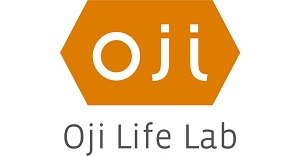ATD Blog
Science Says It’s Time to Reinvent the Training Workshop
Tue Dec 27 2022

The pandemic, remote hiring, and hybrid work arrangements have made it more difficult and less logical than ever for L&D professionals to implement traditional training workshops.
If your staff is scattered geographically or many of your local employees work partly from home, how practical is it to pull everyone together for full-day (or multiday) on-site training events?
It’s time to rethink your approach. Given the increase in workplace stress and exhaustion since the pandemic—Microsoft’s research found that 48 percent of employees and 53 percent of managers experienced burnout in 2022—how confident are you that your staff would respond positively to mandatory, hours-long training lectures in person?
A Promising New Learning Model
Clearly, the disruption to traditional working arrangements in recent years has forced many companies to re-evaluate their approach to learning and development. But all this change may be a good thing for the L&D community.
A growing body of research suggests that the conventional workshop model is less effective than previously thought—and that a newer approach to learning is proving far more successful at upskilling employees in today’s workplace.
In other words, science indicates that it’s time to overhaul and update the traditional training methodology. Here are a few key benefits of “the reinvented workshop.”
Game-Changing Benefits of the Reinvented Workshop
1. Microlearning Units
Instead of marathon training sessions—which often lead to central nervous system fatigue—the reinvented workshop breaks learning into small, self-contained units that learners can quickly consume and process. These microlearning activities might be spread out over days, weeks, or even longer.
The benefits of this shift in approach can be significant. Research published by the National Institute of Health shows microlearning increases the retention of newly acquired knowledge.
This can also benefit your organization’s productivity. When you can deliver learning to your employees in short, digestible units, you won’t need to carve out large blocks of time—hours or even days—for your staff to gather in one place for training sessions.
2. Spiral Curriculum
Whereas traditional training workshops present new knowledge to learners once—and then move on—the reinvented workshop takes the spiral approach to learning.
A spiral curriculum reinforces the learning of new concepts by returning to those concepts repeatedly over time, each time re-presenting them using short, digestible microlearning units. This counteracts the scientifically proven phenomenon known as the forgetting curve, which states that after we acquire new information, we’re likely to forget about 60 percent of it in minutes and possibly 90 percent within a week.
The spiral learning method also allows the training to build logically from simpler to more complex concepts and skills over time.
3. Mobile Platform
How can the reinvented workshop logistically break employee training into many microlearning units and spread out the delivery over weeks?
The reinvented workshop takes place asynchronously using a self-paced mobile platform that learners can interact with on their own schedules, and when they’re feeling the most receptive to learning new material.
A growing body of evidence suggests mobile, self-paced learning benefits learners and their organizations. When Merrill Lynch made its compliance training available to employees via their smartphones, 99 percent said the mobile format supported their learning—and all were interested in more mobile training.
Equally significant, Merrill Lynch estimated the mobile training format saved the company 4,270 hours of productivity because they didn’t have to pull employees away from work for hours-long training sessions.
4. Immersive Learning
Because the reinvented workshop is built on a mobile platform and delivers minilessons whenever the learner is ready, this model allows learners to consume a brief new concept and then put it into action in their real-world environments. The benefits of this approach can be substantial. Applying new concepts to everyday experience makes the lessons more relevant, effective, and memorable, and research suggests that learning through experiences can increase retention by up to 75 percent.
Can’t the traditional workshop offer live, experienced-based lessons as well? Absolutely, and many do. But remember that learners can handle only so much complex new information at one time, even if the learning is hands-on, before they begin to encounter central nervous system fatigue. Because they’ll engage in those experiences only once, after they leave the hours-long training class, they’ll encounter the forgetting curve.
The reinvented workshop counters the forgetting curve through spiral learning spaced over time. This allows learners to return to key concepts several times—and use them in real-world scenarios—over a longer period than any class-based workshop can.
5. Learner-Oriented Content Design
Putting these pieces together, you’ll find that the traditional training workshop simply isn’t designed optimally for learning and skill retention. It was developed in an earlier era—before the internet, smartphones, or mobile apps—to deliver knowledge to large groups of people simultaneously. But we are no longer limited to that outdated format. Today, L&D professionals can do better.
The research clearly shows we should. According to a recent report published by Accenture, for example, more than 90 percent of executives agree existing employee training methods need to be more effective for their workforce.
Try the Reinvented Training Workshop
The concept of work has been disrupted, and so has the concept of learning. It’s time to break away from the traditional and embrace new innovations that allow you to meet the learner where they are or risk negative impacts on your business. You have the tools, the know-how, and the mandate from business stakeholders to step out of the old mold of training and into the new world of learning that truly changes behavior over time.
For your next employee learning initiative—possibly, emotional intelligence training—consider using the reinvented workshop model.

